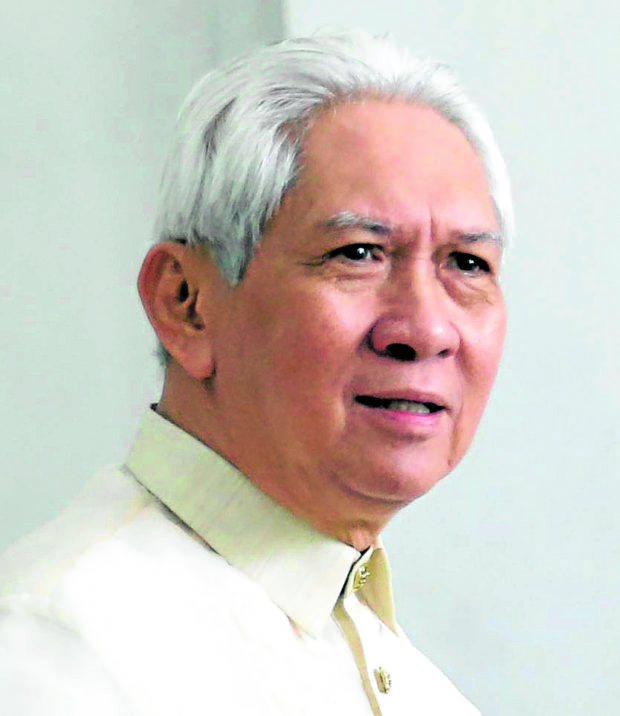Ombudsman says it’s nearly impossible to rid gov’t of corruption
MANILA, Philippines — Ombudsman Samuel Martires said on Thursday that it might be impossible to rid the country of corruption despite the government’s efforts unless a thorough value and religious formation is initiated.
During the budget deliberations of the Office of the Ombudsman before the House committee on appropriations on Thursday, Martires said that solely relying on the prosecution of possible graft suspects would probably not be enough to stop corruption.
“On the aspect of combatting corruption in the country, I think it will take us a lifetime to fight corruption unless and until we change our values. Unless and until we disregard the sources of corruption, which is greed, envy, lust, avarice, these are all the seven cardinal sins,” he said.
“So unless we change our values, no matter who the Ombudsman is, no matter how big the organization of the Ombudsman is, we cannot fight, we cannot prevent graft and corruption because it is already endemic in our society. Everyone wants to be rich, from a concept of a bahay-kubo we all dream to have big houses, houses made of stones,” he added.
Martires then challenged those who claim corruption in a government agency to check whether they can remain clean if they join that particular office.
Article continues after this advertisement“From a concept of a stainless-type owner-type jeep, we dream now of owning a Montero. I challenge everyone who says that this particular agency is corrupt, let him join that agency and let me see if he too will not be corrupted,” Martires noted.
Article continues after this advertisement“Corruption is not just in the government, corruption is also prevailing in the private sector. So no person has the authority or the moral authority to accuse any government official of being corrupt unless he is in that position,” he added.
What the country needs, Martires said, is to have responsible people teach good manners and right conduct to instill good values — based on religion — on Filipinos.
“We have to have a separate good manners on right conduct subject, but this may be used on religious education. Any attempt to teach good manners and right conduct that does not come from someone who has moral ascendancy will just be useless […] Good manners and right conduct must be taught by responsible persons,” Martires explained.
“We have to go back to our own values, we have to go back to that system na mababait, kasi basically ang Pinoy mababait, ang Pinoy hindi magnanakaw, ang Pinoy nagnanakaw lang po kung nagugutom lang po o ang kanyang pamilya ay nasa bingit ng kamatayan doon lang gumagalaw ang Pinoy noong araw. Pero nagbago na ho ang Pinoy, sa pagbabago na ‘yon in-embrace natin ang lahat ‘yong mali,” he added.
This is not the first time that Martires spoke about using religious education as a key to combating corruption: last July 2019, the Ombudsman said during a multi-sectoral meet that he will shift from “prosecution and investigation to values formation and religious education as the main entry points in preventing corruption”.
He then admitted that that corruption would not stop especially with the advent of technology.
The Office of the Ombudsman is currently receiving flak recently after it decided to wait until the full Commission on Audit (COA) report on the Department of Health (DOH) before it decides on whether a probe and complaints are needed.
COA said in its audit report that DOH’s COVID-19 funds worth P67.32 billion contained deficiencies — leading public officials and common folk to urge the Ombudsman to investigate the agency.
It was also criticized for the dwindling number of cases filed against government officials, down from over 2,000 before Martires took over to just below 200 in 2019.
